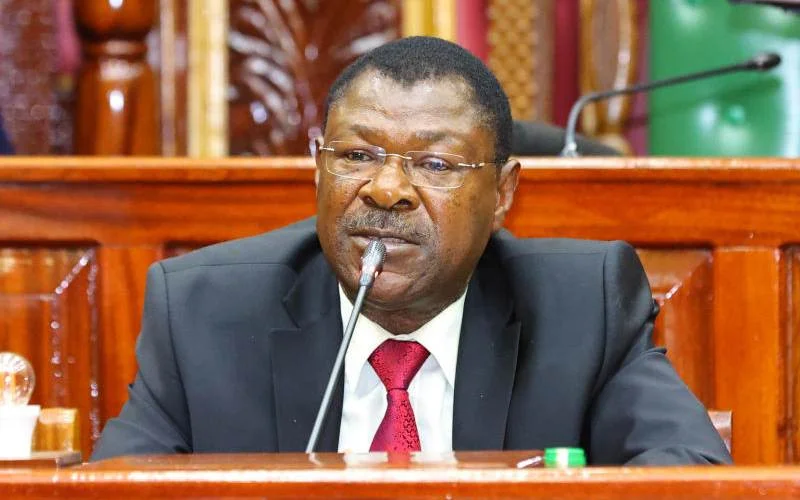
Parliament rejects calls to lift moratorium on Power Purchase Agreements

The National Assembly has rejected calls by the Ministry of Energy to lift the moratorium on Power Purchase Agreements (PPAs).
Instead, parliament fingered the agreements for the high cost of electricity which had pushed away investors and led to a rise in cost of production.
This emerged at the end of two day retreat for the top leadership of parliament in Enashipai Spa in Naivasha where parliament vowed to lead in bringing down the cost of electricity.
The Ministry had approached Parliament with a request to lift the moratorium stressing the urgency of expanding power sources to meet Kenya’s increasing energy demand.
The Speaker of the National Assembly Moses Wetangula promised that parliament would work closely with the Kenya Private Sector Alliance (KEPSA) in addressing investor challenges.
He admitted that the high cost of electricity remained a challenge but was quick to note that parliament was addressing these through friendly laws.
Wetangula however decried the rising number of court cases challenging various projects noting that these were derailing development and progress.
“We are coming up with a law to protect whistle-blowers as part of dealing with graft and we shall protect investors on condition that they also produce quality goods,” he said.
On the moratorium Mwala MP (Eng.) Vincent Musyoka noted that there were no substantial bases for lifting the moratorium on Power Purchase Agreements.
Musyoka, who chairs the Departmental Committee on Energy said that a report on the cost of energy was ready and would be presented in parliament soon.
“We don’t see any reason to lift the moratorium and if we do there shall be conditions which include reviewing the current agreement on power tariffs,” he said.
He proposed that if the moratorium is lifted, Independent Power Producers with existing wind and solar installations should be required to add backup energy storage to harness excess energy produced during the day for peak demand.
Kilifi North Owen Baya said the reason why the moratorium was put in place was because the agreements were bad and they were making the Kenyans pay more.
“We are concerned by the high cost of power in the country which is eroding investor confidence and there is a need to first look at the high cost of electricity,” he said.
On his part, Robert Manyara a member of KEPSA lauded the meeting with parliament noting that this would help address challenges facing the private sector.
“Use of technology will not only increase production but also lead to job creation while reducing the cost of production,” he said.

